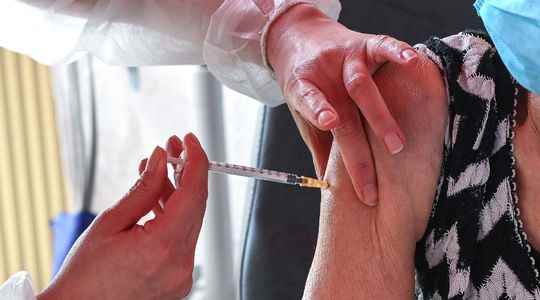For the opening of the fourth dose to the over 80s, the government was in no real hurry. While the Vaccine Strategy Orientation Council, chaired by Professor Alain Fischer, had recommended it on February 18, this measure was announced by Prime Minister Jean Castex only on March 12. The fourth dose is therefore “open” – without being compulsory – to people in nursing homes and to the immunocompromised, in addition to the over 80s. Will it be the same for the extension of the reminder to those over 65? “The recent rebound in the epidemic changes the situation a little, it encourages caution,” says the immunologist, who indicates that he has been seized of the question these days by the public authorities. Its authority must meet during the week, and should officially decide at the latest by next week.
The Scientific Council had already pleaded on March 14 in favor of a second booster for those over 65 with risk factors. The High Health Authority did the same a few days later. In support of their opinions, British, American and especially French data, pointing to a reduction in protection against infection, but also against serious forms, three months after the third dose. Conversely, note the HAS experts, “Israeli data on the real-life efficacy of a second booster show a reduction in the rate of confirmed infections and serious forms”.
Three options on the table
However, many questions still remain – starting with the duration of protection conferred by this additional dose. The study carried out in Israel had indeed only a few weeks of decline. In other words, does it really bring a benefit? “Ideally, to answer, we would need to have efficacy data according to comorbidities and age groups, but this information does not exist. We must therefore make proposals in a context of uncertainty”, regrets the Pr Alain Fisher. This explains why, for the moment, the various States are advancing in dispersed order: the United Kingdom has opened this new reminder to over 75s, and the Germans to over 70s. “We have three options before us, reflects Professor Fischer. Staying with people aged 80 and over and severely immunocompromised people, extending the fourth dose to everyone over 65, or only to those with comorbidities”. The Vaccine Strategy Orientation Council will decide in a few days.
On the positive side, the studies available at this stage show that this second booster does not present any risk and remains very well tolerated. But will the population take up this new vaccination? “We are already seeing that 25% of people over 80 have still not received their third dose, even though it remains essential against Omicron. Giving them this first booster should be the priority”, insists Professor Daniel Floret, expert with of the High Authority for Health. One thing is certain, apart from severely immunocompromised people, this additional booster will not be offered to those under 65, at least not immediately. “It is always possible that we change our minds but for the moment, launching a vaccination campaign with the entire population seems excessive”, confirms Professor Floret.
Questions still unanswered
The few data available at this stage, still from Israel, indeed seem to show that the fourth dose does not provide additional protection in the youngest. “Memory immunity persists and this is surely the essential factor, adds Daniel Floret. We are not going to get rid of this virus, but we will be more and more protected from serious forms”. Indeed, if the data indicate that the antibodies circulating in the blood disappear after four to eight months, they also show that protection against severe forms of Covid-19 persists, suggesting an effectiveness of memory immunity.” The immune response is elicited by an infection – the more severe the form, the more the immune system is involved and the more memory is strong – but also by vaccines. It involves several clones of B and T lymphocytes which remember the antigens to attack and which will, if the host is again exposed to the pathogen, not prevent infection, but wake up, multiply and produce antibodies which will destroy infected cells, and potentially prevent serious forms”, explains Professor Yves Buisson, epidemiologist and president of the Covid-19 cell of the National Academy of Medicine.
Some scientists therefore call for decisions not to be taken too hastily on the administration of boosters in the general population. “Besides the effectiveness of memory immunity, there are also many questions for which we don’t have clear answers, such as the rare vaccine-induced long Covid cases. Pausing will allow science to ‘move forward’, underlines the virologist and professor emeritus Hervé Fleury. He believes, however, that the question of the fourth dose will rest at the end of next summer: “We can then ask ourselves whether it should be injected at the same time as the flu vaccine, for example”, he adds.
The questions will also relate to the type of vaccine that will then have to be used.” Injections against Omicron only seem unlikely because logically, if a new variant emerges, it should be far enough away from this strain to escape immune responses. that we are building against it at the moment”, says Professor Fischer. Vaccine trials combining the virus that appeared in Wuhan with Omicron or Beta are, however, underway. Vaccines using different messenger RNA technologies, such as those from Novavax and Sanofi, may have obtained authorizations for booster use by then. What to give the possibility to the health authorities to optimize their strategies, to offer the best possible protection in a still very uncertain context.
